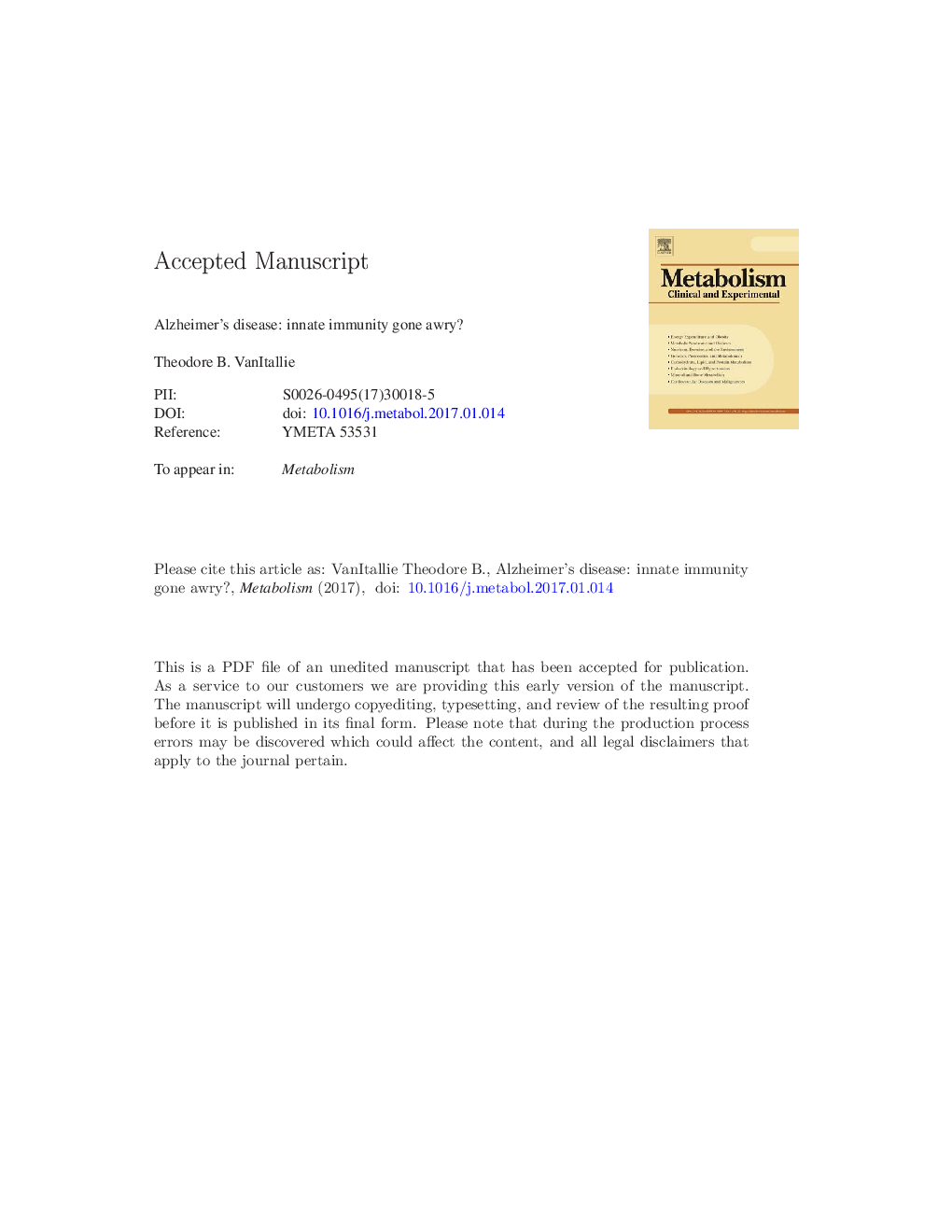| کد مقاله | کد نشریه | سال انتشار | مقاله انگلیسی | نسخه تمام متن |
|---|---|---|---|---|
| 5588485 | 1404548 | 2017 | 32 صفحه PDF | دانلود رایگان |
عنوان انگلیسی مقاله ISI
Alzheimer's disease: Innate immunity gone awry?
ترجمه فارسی عنوان
بیماری آلزایمر: مصونیت زودهنگام
دانلود مقاله + سفارش ترجمه
دانلود مقاله ISI انگلیسی
رایگان برای ایرانیان
کلمات کلیدی
عصب خونی خونریزی مانع مغزی، ²-هیدروکسیبوتیرت، میکروگلایا، فعال سازی تکمیلی،
موضوعات مرتبط
علوم زیستی و بیوفناوری
بیوشیمی، ژنتیک و زیست شناسی مولکولی
علوم غدد
چکیده انگلیسی
Inflammation is an immune activity designed to protect the host from pathogens and noxious agents. In its low-intensity form, presence of an inflammatory process must be inferred from appropriate biomarkers. Occult neuroinflammation is not just secondary to Alzheimer's disease (AD) but may contribute to its pathogenesis and promote its progression. A leaky blood-brain barrier (BBB) has been observed in early AD and may play a role in its initiation and development. Studies of the temporal evolution of AD's biomarkers have shown that, in AD, the brain's amyloid burden correlates poorly with cognitive decline. In contrast, cognitive deficits in AD correlate well with synapse loss. Oligomeric forms of amyloid-beta (oAβs) can be synaptotoxic and evidence of their deposition inside synaptic terminals of cognition-associated neurons explains early memory loss in AD better than formation of extracellular Aβ plaques. Among innate immune cells that reside in the brain, microglia sense danger signals represented by proteins like oAβ and become activated by neuronal damage such as that caused by bacterial endotoxins. The resulting reactive microgliosis has been implicated in generating the chronic form of microglial activation believed to promote AD's development. Genome-wide association studies (GWASs) have yielded data from patients with sporadic AD indicating that its causes include genetic variation in the innate immune system. Recent preclinical studies have reported that β-hydroxybutyrate (βOHB) may protect the brain from the adverse effects of both the nucleotide-binding oligomerization domain (NOD)-like receptor protein 3 (NLRP3) inflammasome and the deacetylation of histone. Consequently, there is an urgent need for clinical investigations designed to test whether an orally administered βOHB preparation, such as a ketone ester, can have a similar beneficial effect in human subjects.
ناشر
Database: Elsevier - ScienceDirect (ساینس دایرکت)
Journal: Metabolism - Volume 69, Supplement, April 2017, Pages S41-S49
Journal: Metabolism - Volume 69, Supplement, April 2017, Pages S41-S49
نویسندگان
Theodore B. VanItallie,
